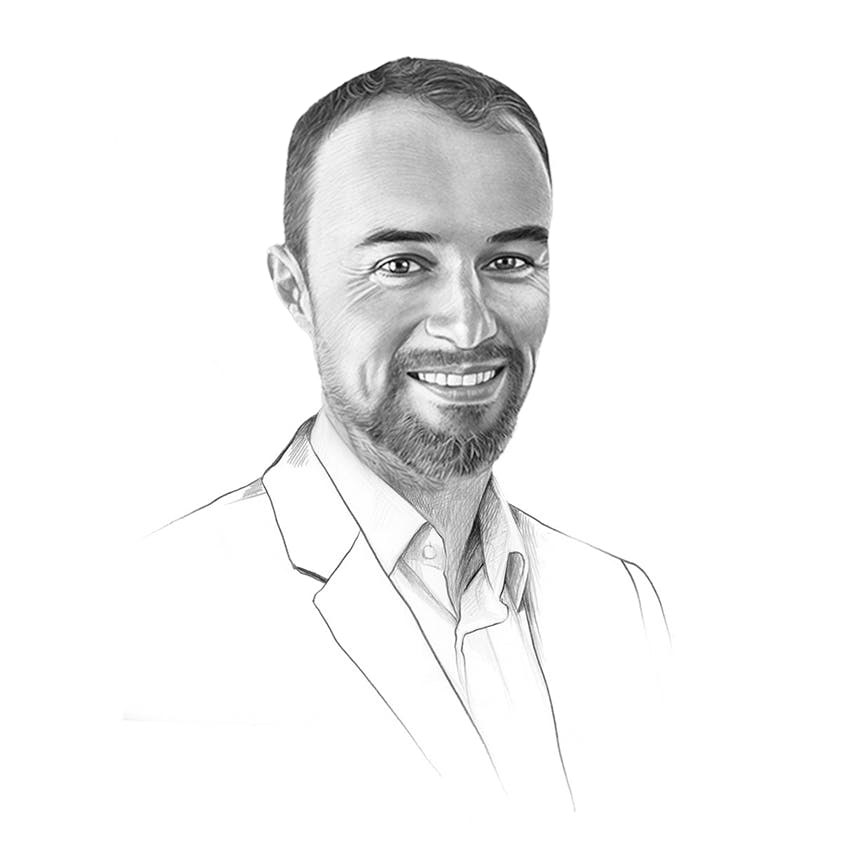#9 Our investment approach
Discover the groundbreaking work of two outstanding academics and how they have shaped our passive investment approach.
Investing in shares is not a new idea. Stock markets have existed since early modern times, and those who were familiar with them and had access to them were able to invest in shares a long time ago.
The unpredictability of short-term returns
One of the economists whose theories are fundamental to our investment principles is Eugene Fama. In the 1960s, he addressed the question of whether equity returns are predictable in the short term. In the long term, the matter is quite clear. Over an economic cycle, equities yield an average return of around 6 percent (adjusted for inflation). And that over decades. In the short term, however, share returns are unpredictable.
In today's world, information that can influence the share price is immediately priced into the share price. For example, if a pharmaceutical company publishes positive or negative results from clinical trials, the share price changes immediately. Share prices are therefore unpredictable in the short term. In 2013, Eugene Fama was awarded the Nobel Prize for these findings.
The relationship between risk and return
The second important researcher for us is William Sharpe. He also made groundbreaking discoveries in the 1960s. He showed that the expected return on equity investments is directly related to risk.
There is a linear relationship between risk and return: more risk means more expected return, less risk means less expected return. However, there are two types of risk: systematic and unsystematic risk.
- Systematic risk, on the other hand, is the ups and downs of the entire stock market or a sector.
- Unsystematic risk (idiosyncratic risk), on the other hand, relates to individual events that affect the share price of a single company.
The realization that returns are primarily related to systematic risk led to William Sharpe being awarded the Nobel Prize in 1990. To understand this, it is important to keep in mind that unsystematic risk can be minimized through diversification.
Diversification and cost-efficient investment instruments
Diversification is important because unsystematic risk offers no risk premium. To achieve this, at True Wealth we invest in different asset classes, economic sectors, global markets and companies. We pursue a passive investment approach and rely on cost-efficient and liquid ETFs.
Exchange Traded Funds (ETF)
ETFs are exchange-traded investment funds that track a market index. There are around ten thousand ETFs on the market, but not all of them are suitable. We select the best ETFs for you. In addition to the product costs, we also take into account the market liquidity and the counterparty risk resulting from the structure of the ETF.
In addition, we analyse how well the ETF tracks the market index (so-called tracking error) and take into account the tax efficiency of the investment instruments in order to minimize withholding tax on dividends. We also pay attention to the trading currency of the ETF in order to avoid unnecessary currency conversions from CHF to foreign currencies, where this is beneficial to the bottom line. In Pillar 3a, we also use index funds for tax reasons.
Individual risk tolerance
Every investor is unique and has a different risk tolerance. That's why we don't have just one portfolio. Every client portfolio is individual. Once we have determined your risk profile using our online questionnaire, we will propose a customized, globally diversified portfolio. Would you like more Swiss equities? Or no commodities? No problem, our platform is tailored to your wishes. However, we set guidelines to ensure that your portfolio always remains diversified and suits you in terms of risk.
Regular portfolio adjustments
Market movements can cause your portfolio to deviate from the investment mix optimized for you. That's why we keep your portfolio on track. In other words, we buy or sell the appropriate investment instruments for you so that your portfolio moves back towards your desired investment mix. But not too often — because on the one hand, every transaction costs you some return (trading commissions do not cost you extra — we deduct them from our asset management fee; however, the bid-ask spread is unavoidable).
On the other hand, regular portfolio adjustments, also known as rebalancings, can lead to an additional return, as price valuations often approach their long-term average in the long term. In addition, your personal risk tolerance and the portfolio risk remain in balance over time.
If you have any questions or comments, please send an e-mail to Felix Niederer. See you next time!
Links
About the author

Founder and CEO of True Wealth. After graduating from the Swiss Federal Institute of Technology (ETH) as a physicist, Felix first spent several years in Swiss industry and then four years with a major reinsurance company in portfolio management and risk modeling.

Ready to invest?
Open accountNot sure how to start? Open a test account and upgrade to a full account later.
Open test account